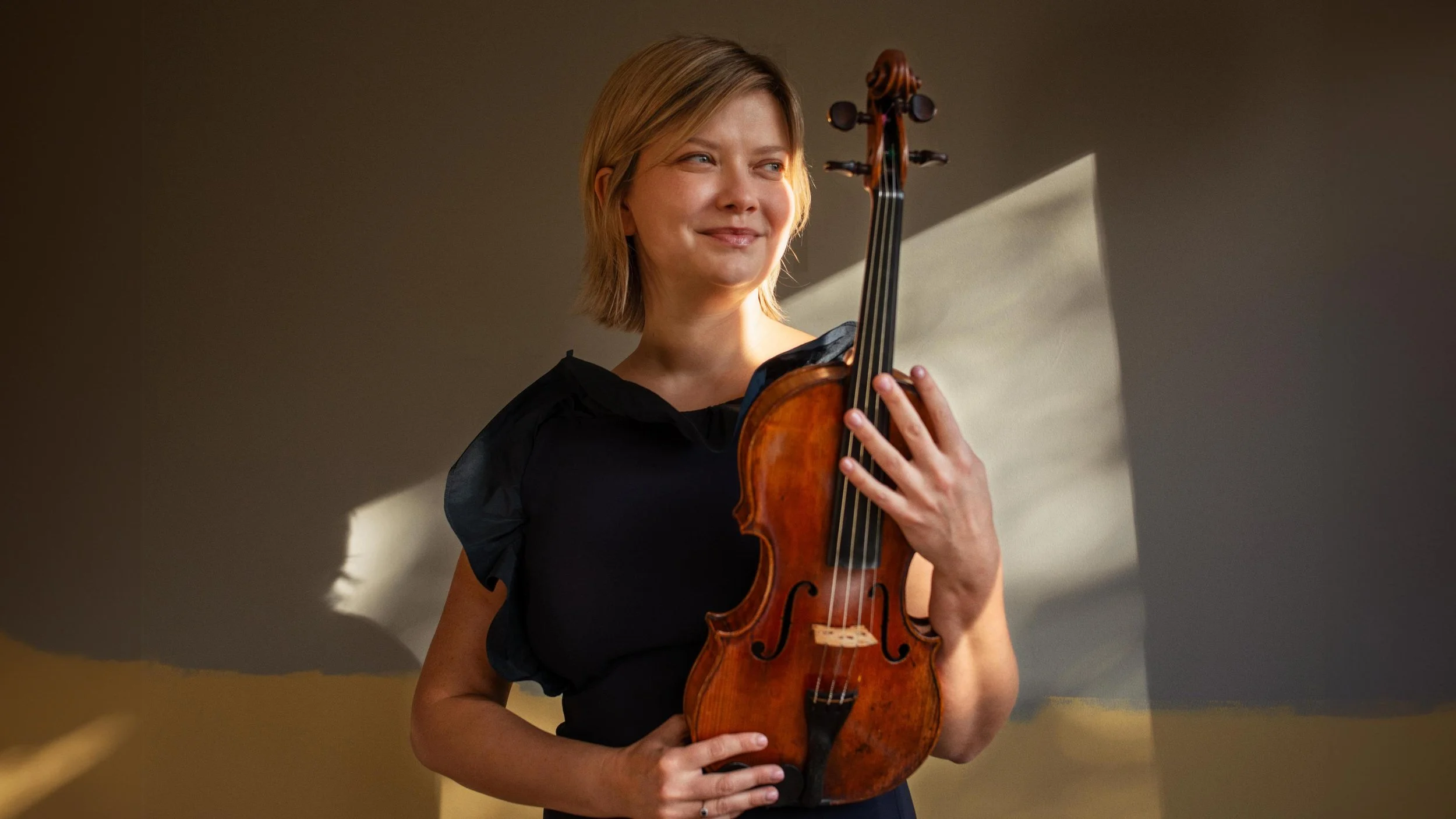Alina Abragimova (violin) and Steven Osborne (piano). Lakeside, Nottingham. 06 February 2025, 5☆☆☆☆☆. Review: William Ruff.
Photo Credit: Lakeside.
Alina Abragimova (violin) and Steven Osborne (piano). Lakeside, Nottingham. 06 February 2025,
5☆☆☆☆☆. Review: William Ruff.
“Virtuosity married to deep musical insight.”
It’s hardly surprising that this Lakeside concert had been sold out for weeks. Both violinist Alina Abragimova and pianist Steven Osborne stand at the top of their profession as individual artists. They are also a well-established duo that manages to be even more than the sum of its parts.
There was another likely reason for the sell-out: the inclusion on their programme of possibly the most popular violin sonata ever written, the one in A major by the Belgian composer César Franck. He wrote it in 1886, inspired by the playing of his countryman, the virtuoso violinist, Eugène Ysaÿe. It’s a wonderful piece, big in scale and full of beautiful, memorable melodies. Abragimova and Osborne’s deep experience in this work could be heard in every bar, the mood of each movement captured perfectly and both performers seemingly making light of the music’s ferocious technical demands.
They also played the Violin Sonata No 1 by the 20th century Russian composer Sergei Prokofiev, another work inspired by a virtuoso’s playing, in this case that of David Oistrakh. It’s not a work for the faint-hearted. The opening movement is very dark in tone and utterly uncompromising in style and technique. There’s no let-up in what follows: a fierce (even violent), scherzo-like Allegro brusco. The third movement is amongst Prokofiev’s most haunting whilst the finale covers a huge emotional range, as if summing up all the moods of the piece, including a repeat of an eerily quiet passage from the first movement which Prokofiev told Oistrakh ought to sound “like the wind in a cemetery”. The words must have stuck in Oistrakh’s memory as he chose to play the movement at the composer’s funeral. Abragimova and Osborne both displayed an intuitive understanding of Prokofiev’s musical language, exhilarating, terrifying and moving the audience in equal measure.
The recital also featured two exquisite short pieces by French composer Lili Boulanger, whose immense promise was cut tragically short by her death at the age of only 25. Nocturne was given a gently lyrical performance whilst Cortège was full of high spirits.
And something completely different from any of this was the piece with which the duo opened their Lakeside recital: Fratres by Estonian composer Arvo Pärt. He’s known somewhat flippantly in musical circles as the “holy minimalist”, which may sound a bit tasteless but it does at least give some idea of his style, combining the central European tradition with the music of the Orthodox Church. He produced several versions of Fratres for various instrumental combinations. This version for violin and piano reveals the music’s subtle shifts in intensity and emphasis, providing compelling insights into its highly distinctive musical and spiritual world.
Imaginative programming, often breathtaking virtuosity, deep musical insight: just three ingredients which help explain why this recital was such a satisfying experience. An encore was inevitable…and the slow movement of another Prokofiev sonata did very nicely.
Alina Abragimova (violin) and Steven Osborne (piano)
